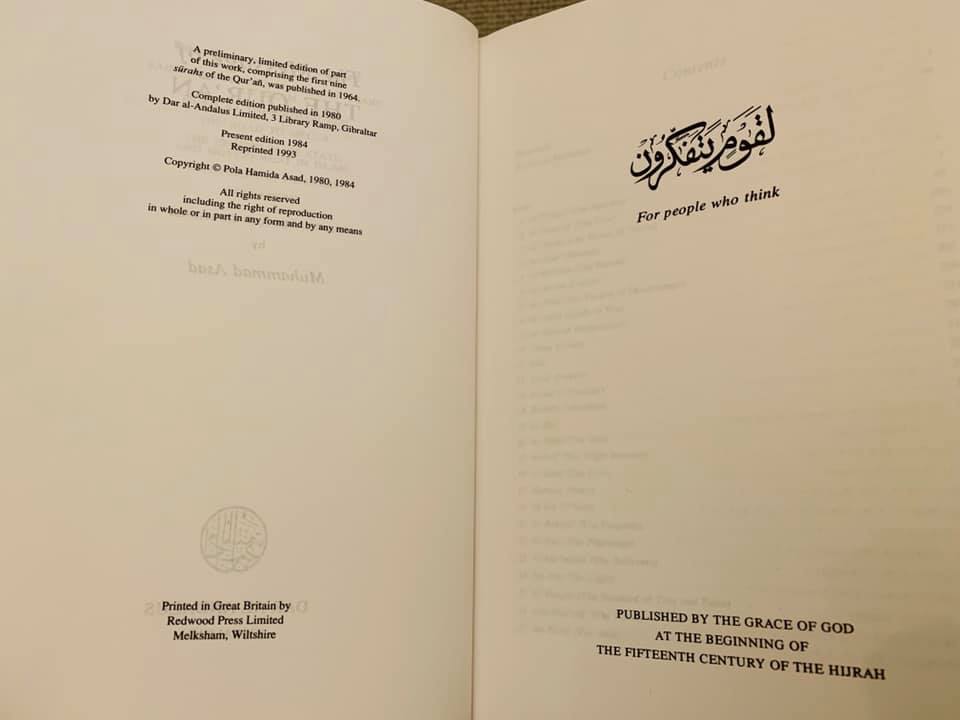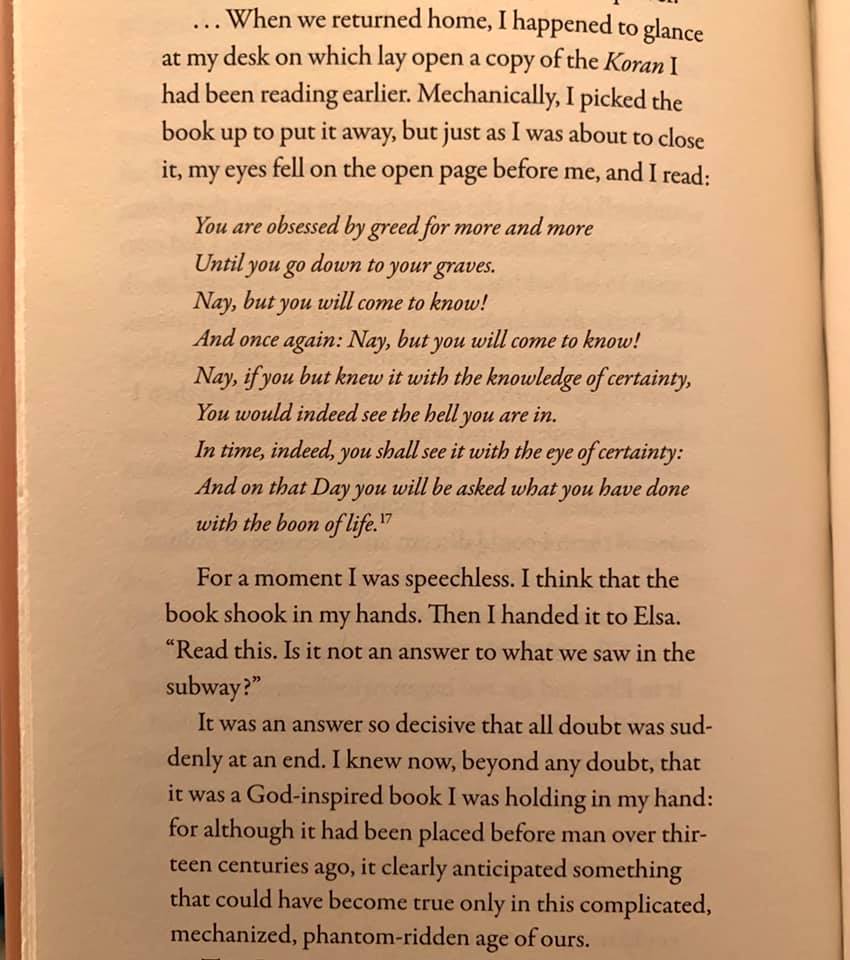This week we look at the highly original and influential work by the rationally-inclined Muhammad Asad: “The Message of the Qur’an”.
Born Leopold Weiss in 1900 in Austria-Hungary (modern-day Lviv, Ukraine), he became Muslim in 1926. As he recounts in his autobiography “The Road to Mecca”, a Qur’an translation played an important role in his conversion. (See attached image from Bruce Lawrence, “The Koran in English”.) Lawrence suggests the translation was Muhammad Ali’s (of the Lahore Ahmadis) – certainly not Weiss/Asad’s own, as the excerpt implies! Despite doctrinal differences between these translations, they are similar in format, especially in their extensive use of footnotes.
Asad lived an eventful life as a journalist, diplomat and scholar. He associated with the founders of both Saudi Arabia and Pakistan. Later, in Switzerland and Morocco, he dedicated himself to his Qur’an translation, published in 1980. He died in 1992 and is buried in Granada. In his introduction, Asad indicates his role in making the Qur’an comprehensible more than any previous translator, as someone who as “absorbed the nuances” and “spirit of the language”. He also declares his indebtedness to the Egyptian modernist Muhammad ‘Abduh (d. 1905). In addition, Asad’s use of classical tafsir materials is clear from his footnotes, which explain many of his translation choices and elucidate issues in the text. His work is a model of transparency which not many translators have followed.
Muhammad Asad’s translation is understandably perceived by many Muslims as having a modernist/rationalist bent. That is less apparent in digital formats which remove the footnotes. However, that separation considerably decreases the value of his work to thoughtful readers. All in all, this is an indispensable translation & commentary for students of the Qur’an and its interpretation, as well as practitioners of translation.
Examples from Asad’s translation:
- “Clouds pregnant with water” instead of “camels” in Q 88:17:
https://twitter.com/tafsirdoctor/status/1143246927997353984 - “No male child [she might have hoped for] could ever have been like this female” (Q 3:36):
https://twitter.com/tafsirdoctor/status/1049685577740759043 - A point from Razi’s Great Exegesis conveyed inaccurately:
https://twitter.com/tafsirdoctor/status/1131347208878612486
Sohaib Saeed



